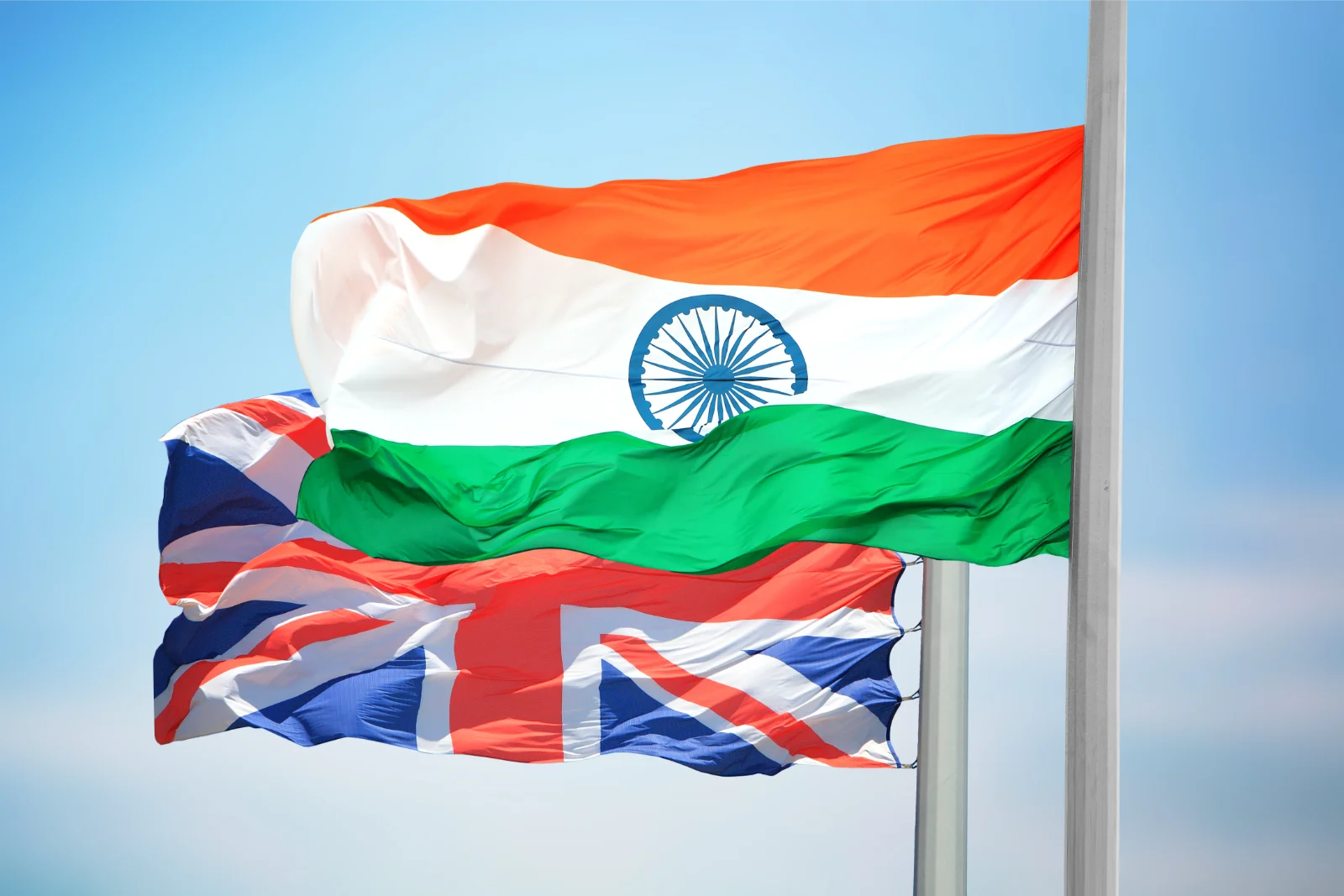| All | Blog | Videos | Webinars |

Over the last few years, Indian nationals have been some of the most common applicants for a UK visa. Anyone making a move from India to the UK will need to know what to do to be first able to come here. Then, they will also need to know about adjusting to their new home, and maybe even find out what they need to do if they want to move back to India.
For the year ending December 2023, 250,000 Indian nationals arrived in the UK. This is much higher than the second-highest nationality, which was Nigerians, with 141,000 arrivals.
Moving to a new country comes with a set of new challenges, such as finding somewhere to live, adjusting to the local culture, and even the very climate itself.
Also, many people come to the UK for just a few years to study or work. After this period is done, they will want to go back to India and take their qualifications with them, which will require the help of a notary public.
We will guide you through the important things you need to know if you are planning a move from India to the UK, such as getting a visa, what to do when you are here, and how you can easily go back to India after.
Applying for your visa to move from India to the UK
Before you even consider anything else when planning your move from India to the UK, you first need to know what visa to apply for. Whether you are coming to the UK to work, study, or as a dependant of someone applying for their own visa, you will need to know what the right visa is for you.
If you are studying or working in the UK, you will first need to have a confirmed offer to study at a valid educational institution, or an employer, who will act as your sponsor to come to the UK.
Your sponsor should issue you with a Certificate of Sponsorship (CoS), which you will need when you apply for your visa.
A few examples of popular visas include:
Prospective students will need to apply for a Student Visa after they have been issued with a CoS, whilst workers will have a few different options for worker visas. Additionally, the most common worker visa is the Skilled Worker Visa, and the second most common is the Health and Care Worker Visa. There are several other worker visas, so if you are unsure which one suits your situation, then you should get immigration legal advice from professionals such as our legal team.
For a Dependant Visa, the process is slightly different. Also, some visas, such as the Health and Care Worker Visa, do not allow people to bring their dependants with them. Dependants will need to apply separately, but the main applicant should be issued with a code that they can give to their dependants, which links the applications together.
All visas have slightly different requirements, which you should be able to find when you are applying for your visa, though you can also find them on our website by looking at our visa library page.
If you are unsure about anything regarding the application process, such as what you need to do or what visa to apply for, then please contact us for expert immigration guidance.
English requirement
Visas all have different requirements, but one major thing most visas have is that you have to provide proof of your English knowledge. This is so that UK Visas and Immigration (UKVI) are satisfied that you will be able to effectively communicate and get by in your daily life whilst staying in the UK. However, there are some exemptions to this rule which we mention later on.
Depending on the visa you are applying for to move from India to the UK, you will need to prove a different level of English knowledge, according to the Common European Framework of Reference for Languages (CEFR). The framework has six levels, ranging from A1 as the lowest, to C2 as the highest.
For example, a Skilled Worker requires you to have at least a B1 level of English knowledge.
Meanwhile, the Student Visa requires that you have B1 to study below the degree level, or B2 to study above the degree level.
Family visas for dependants have the lowest requirement, as they will have their family members to rely on. The minimum level of English knowledge for dependants is A1.
Exemptions to the proof of English requirement
Please note that those aged under 18 or over 65 will not have to provide proof.
Also, people from certain countries do not have to provide proof of their English knowledge, such as Australian or Maltese nationals. However, this does not apply to Indian nationals.
Ways of proving your knowledge
If you are not exempt, then you will have to provide proof by passing a test at an approved provider. Alternatively, you can prove your knowledge by providing evidence that you passed a degree that was taught in English, or got it in a country that speaks English.
Student Visa applicants have another way of proving their English proficiency. Some prospective students will have come to the UK as children, but not yet have British citizenship. As a result, they will have gone through the British education system, attended a British school, and attained GCSEs, A-levels, Scottish National Qualification level 4 or 5, or Scottish Higher or Advanced Higher in English as a subject. These qualifications can be used as proof of your English knowledge.
Learning English
If you would like to practise or improve your English knowledge, then there are some tools you can use to learn. We have a guide on five of the best ways to learn English if you would like to know more.
Important things to know before you travel
Once you have everything else ready to go, such as your visa, you should start to think about what you will need to do upon arrival after you move from India to the UK.
For example, there are important services you will need to register for, such as healthcare. To do this, you need to register with your local general practitioner (GP).
Possibly one of the most important things to make sure you apply for is a National Insurance (NI) number. There is a possibility that you already have one, which you should be able to find on the back of your biometric residence permit (BRP) card.
You should also make sure that you get a UK SIM card so that you can use your phone in the UK without large roaming fees, and set up a UK bank account.
On a slightly lighter note, be prepared for a difference in climate. You will have to adjust to it being cold and rainy many days of the year. A reliable raincoat will be a good investment.
We have a guide with more useful things to know before you move to the UK if you would like to read more.
“
”
Settling in to the UK
When you move from India to the UK, you will want to both experience what the local culture has to offer and find activities that you will enjoy, but you may also get homesick. With there being a strong Indian community in the UK, you will likely find people in a similar situation to you. These people will be perfect to give you a sense of home, whilst you explore a new country.
If you want to find other people like yourself, then there may be groups on social media you can join to meet other people. From there, you can partake in activities such as walking through some of the beautiful national parks that Britain has to offer, such as the Peak District or the New Forest.
Going back to India
As we previously mentioned, many people do not permanently stay in the UK, and instead decide to move back home once their visa has expired, and they have done what they came to do. Some may even have important matters to attend to.
In the event that you got important documents such as a degree or a qualification in the UK, then you will want to take it back to India with you. The same applies to if you have important matters to deal with through documents such as a Power of Attorney.
A list of documents you will need to get notarised and legalised includes:
- Affidavits
- Birth Certificates
- Corporate documents
- Criminal background checks (usually a DBS or ACRO certificate)
- Powers of Attorney
- University degree certificates
- Marriage certificates (legalisation only)
- Proof of identity (for example, a driver’s licence)
- Wills
However, it is not as simple as just taking the document with you on your flight back.
To be able to take your documents with you, they will need to be notarised and legalised. These are services that can be done for you by the notary side of our business, Woodcock Notary Public. The team can assist you with the whole process of notarisation, and also get your documents legalised for you. India is a member of the Hague Convention on apostilles, so your documents will be legalised through the use of an apostille.
Our Principal Solicitor, Nathan Woodcock, is also a registered Notary Public of England and Wales, so he is the one who will be carrying out the notarisation of your documents. People going to India are Woodcock Notary Public’s most common clients at the moment, so Nathan has developed a great understanding of what clients want and need.
How we can help with your move from India to the UK
Now you know all about what to do to prepare for your move from India to the UK, what to do when you get here, and what you might need to do if you want to go back to India once you have finished what you came to do, you can begin your journey to the UK.
For help with getting a UK visa, then please get in touch with our helpful law team. You can contact them by phone, email, website chatbot, or by booking a free 10-minute assessment, which allows them to see how they can help you. Please note that we do not give free guidance.
After your initial contact with the team, you can arrange a longer, paid consultation that can last either 30 minutes, or an hour; the choice is yours. You can also choose between whether the consultation is carried out by one of our Immigration Specialists, or by our Principal Solicitor, Nathan Woodcock. During the consultation, you will be given expert advice and you will be able to plan your next steps.
For notarisation services, please get in touch with the Woodcock Notary Public team to see what they can do for you.





